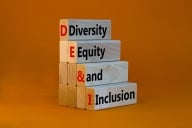You have /5 articles left.
Sign up for a free account or log in.

sinseeho/iStock/Getty Images Plus
Students of color are worried about paying for college, and scholarships that consider race as a primary factor serve as a lifeline for them. These students are often the first in their families to attend college and come from households struggling to make ends meet.
Yet as we continue to see far-reaching implications of the Supreme Court decision striking down affirmative action in the admissions process, the ripple effects are jeopardizing financial accessibility to higher education for these underrepresented communities. Shortly after the decision was announced, Missouri’s attorney general, Andrew Bailey, ordered all higher education institutions in his state to discontinue financial aid or scholarship programs that consider race. Western Kentucky University is facing a federal civil rights complaint challenging two fellowship programs aimed at supporting students of color.
The landscape is now rife with many unresolved questions about the extent to which institutions will need to pursue race-neutral policies at the expense of scholarships that fill the gaps for historically marginalized students of color.
As I lead APIA Scholars, a scholarship program serving the Asian American, Native Hawaiian and Pacific Islander (AANHPI) community, I am deeply concerned and disheartened by the ongoing targeting of race-based scholarships. These scholarships have played a crucial role in addressing systemic inequalities and rectifying the historical injustices that persist in our educational system. They are essential for promoting diversity and inclusivity on college campuses. They create a richer and more equitable educational environment for all students.
Despite these new challenges for those of us dedicated to removing barriers to higher education for all students, it is our duty to ensure that students of color, particularly those our organization supports in the AANHPI community, have the financial support necessary to access higher education. Oftentimes, the AANHPI community is invisible and discounted when it comes to the reporting of poverty or inequity of wealth distribution in the United States.
But income inequality is growing the fastest within AANHPI communities, and aggregate data that paint our community with one brush serve to hide the stark details. For example, those of Burmese descent have a 25 percent poverty rate versus a 7 percent rate for Filipino individuals. Individuals of Bhutanese descent are paid hourly wages that are just half of the national average.
Due to the model-minority myth, it is assumed that all AANHPI students fall into a monolith of wealthy and successful individuals. In fact, when you disaggregate the data, AANHPI students face tremendous disparities in access to postsecondary education and degree attainment.
Underserved AANHPI communities have a large education gap: the percentage attaining at least a bachelor’s degree ranges from 4 percent, for foreign-born Marshallese, to more than 75 percent for Indians. A staggering 89 percent of the students we surveyed in the past year identified the cost of college as their primary concern. Asian Americans also face significant language barriers, with nearly 20 percent of households lacking a fluent English speaker over the age of 14.
At APIA, we represent more than 48 distinct ethnicities who speak more than 300 different languages and come from all over the U.S. and its territories, including communities like Oakland, Minneapolis, New York City, Honolulu and Guam. Our hope is that the endeavors to dismantle race-based scholarships and the ramifications of the affirmative action decision do not deter universities from their commitments to promoting diversity, offering opportunities to all students, and making college education financially accessible to historically underserved communities.
For our part, we have awarded more than 8,100 scholarships valued at more than $150 million, and the long-term success for our scholar graduates is clear. At this critical juncture, our determination to secure an affordable pathway to college and careers for the AANHPI community through race-based scholarships and our advocacy for these deserving students has never been stronger. We urge the college-access community to unite with us in amplifying the voices of our scholars, enhancing the recruitment process, scrutinizing admissions practices and eliminating barriers to college. Together, we can empower colleges to expand their outreach to underserved communities, increase need-based support and enhance student success—ensuring a more equitable future for all.








